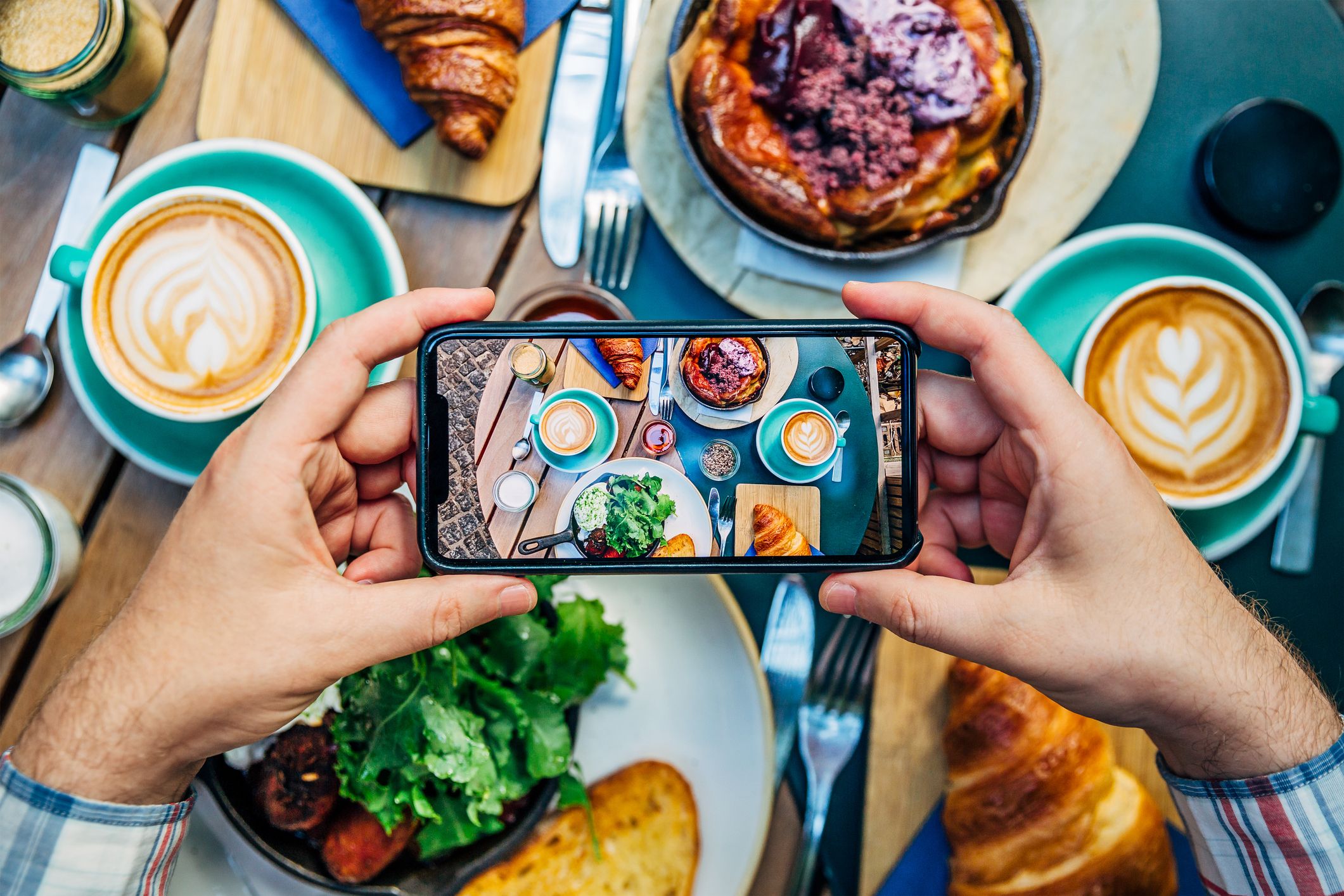In the short term, social media has changed dramatically in the way we live. During a major shift in factors such as labor relations, the often overlooked area is the influence of social media on our food.
For better or worse, the way we feed our minds on social media affects how we feed ourselves in real life. As Americans spend more and more time on social media platforms such as Facebook, Instagram, and Twitter (an average of 2 hours and 3 minutes a day), we can’t help but be influenced by the messages these social media platforms are giving about food.
A 2020 study found that people’s opinions about how many fruits and vegetables some Facebook users ate were related to the number of fruits and vegetables they ate. And apple and broccoli prices, of course, are not the only thing social media is accustomed to. Our typical social scroll diet gives us a sense of what is normal or appropriate for everything from body sizes to body sizes.
So can you eat well under the influence of social networking apps? Here are some of the pros and cons of the effects of social media on diet, as well as looking at how to feed a healthy diet.
Table of Contents
Potential Benefits of Communication
We have all heard reports of a catastrophe about how social media is affecting us. However, if you do well, keeping up with your favorite accounts can have a positive effect.
Encouraging and Encouraging
In social media, there is a fine line between aspiring and completely absurd, but if you follow the people who provide a healthy model, you may feel the power to change for the better. Try signing up for people with their favorite foods or fitness levels (but they are not sure about their challenges).
Creates a Good Food Society
Another advantage of social media is its ability to connect people with like-minded people. Whether you are a tropical fruit lover or you are trying a low-carb diet for the first time, you can easily find others in the same situation on the internet.
Reveals You to New Things
Gone are the days when trying a new recipe meant digging through a lot of cookbooks. Now, with just a few clicks, social media has the potential to expose us to new recipes, ingredients, and new ways of thinking about food.
Possible Communication Problems
Despite its strengths, social networking has some drawbacks. As you spend time at various venues, be aware of the potential dangers.
Disrupted Eating Can Lead to Poor Eating
It is not always the content of social media that can damage our eating habits — it is the habit of scratching. A disrupted diet (usually) means overeating. A 2013 meta-analysis3 study of 24 studies showed that when people ignore their diet, they end up eating more.
In one study of 20204, disruptive diets led to people eating less — but also enjoying their meager diet. Putting down a phone, tablet, or computer while eating is always a good idea.
Creates Unreasonable Beliefs and Expectations
Let’s face it: social media is not well known for setting realistic expectations. Both promoters and individuals can use online forums to showcase the beauty and brightness of their lives, especially their eating habits. Adherence to these assumptions of perfection is a recipe for disappointment with our diet. If someone else’s perfect lunch or a flawless title makes you feel down about yourself, try to remember that everything you see is a short picture, not a whole picture.
In the meantime, it is easy to forget that, for many people, social media is a full-time job. Following people who pursue gluten-free, vegan full-time cooking, for example, may not give it up if you have a busy schedule and kids eating. Instead of pursuing an account that makes healthy eating seem unattainable, look for those that are easily accessible to your health.
Advertisements Influence Us More Than We Can Think
While we would like to believe that we are not immune to advertising, advertisers use ads because they are effective. And now, as targeted ads come to you on social media based on your personal information, advertising becomes more and more personal.
According to a 2016 study, this could not simply affect our shopping habits — they could even affect our attitude and behavior. Although more research is needed on the interaction between social media ads and food choices, it is clear that advertisements have a profound effect on general behavior, and they may influence the reach of foods we would not otherwise choose.
It May Cause Eating Disorders
Numerous studies have shown that social media can be harmful to our attitude toward food, especially for young people. A large 20166 study of adult adolescents found a “strong and consistent link” between the use of social media and food concerns.
Another 2020 study linked the use of social media with disturbed eating and behavior behaviors in children from seventh to eighth grade. Problems that are promoted by social media, such as peer pressure, unrealistic values, and the acceptance of negative ideas about weight, can contribute to an unhealthy diet.
